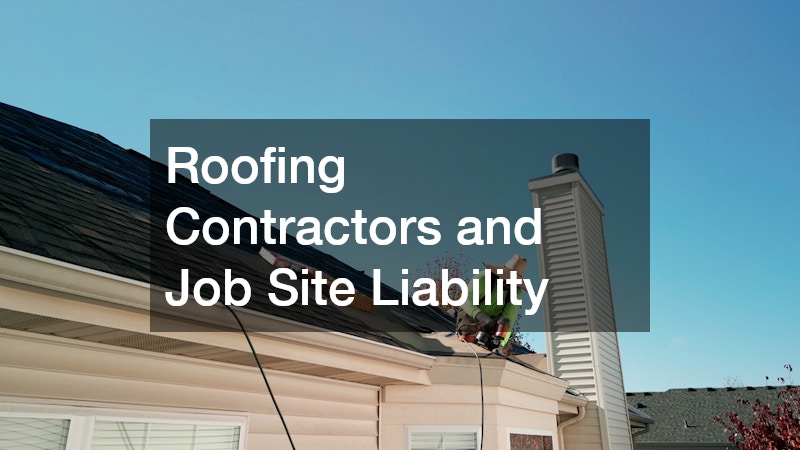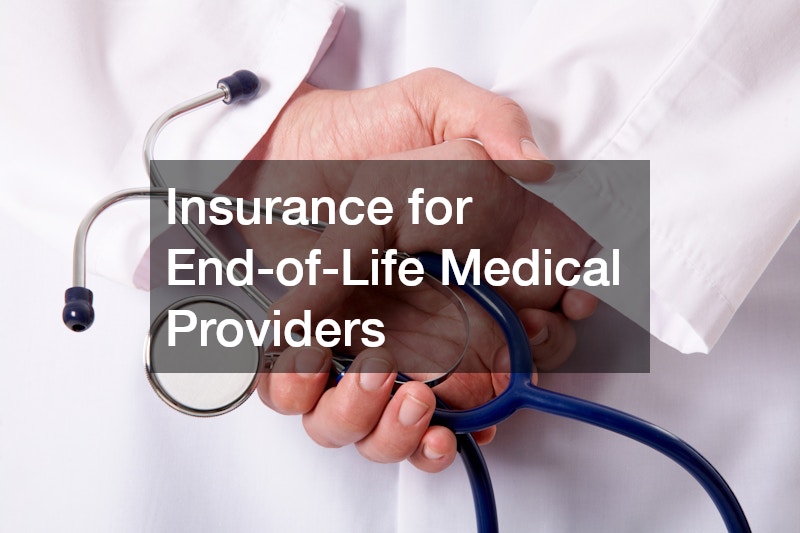In today’s complex and risk-filled working world, professionals across every industry must be aware of the insurance policies that protect their careers, clients, and assets. Whether you work in healthcare, law, construction, or home services, tailored insurance coverage is essential. This includes general liability, professional liability, malpractice, workers’ compensation, and more. Choosing the right policy not only safeguards your livelihood but also ensures compliance with legal and industry standards.
One valuable resource many professionals rely on is a liability solutions network—a consortium of brokers, agents, and consultants who help businesses and individual practitioners identify and secure the right coverage. These networks simplify what can otherwise be an overwhelming process, offering recommendations based on your role, exposure, and level of risk.
This blog explores the unique insurance needs of various professionals, from medical practitioners to tradespeople and legal experts. By understanding how insurance applies to your specific occupation, you can reduce risk, remain compliant, and operate with confidence. Whether you’re running a small practice, managing a large company, or offering specialized services, knowing your coverage options is crucial. Let’s explore the details across different professions and highlight how the liability network can serve as your guide to better protection.
Coverage Needs for Vision Care Professionals

For those in the field of optometry and ophthalmology, the right insurance coverage can make a critical difference in both business stability and patient trust. An eye doctor is responsible for diagnosing and treating vision issues, prescribing corrective lenses, and, in many cases, identifying signs of systemic diseases. Given the intimate nature of their work and the potential for medical errors, malpractice insurance is essential.
In addition to malpractice coverage, general liability insurance protects eye care clinics from third-party claims involving slips, falls, or property damage. Cyber liability is also increasingly important as patient records become digitized. Having the support of a liability network helps eye doctors identify gaps in their existing policies and ensure they are fully protected.
Insurance policies must also account for expensive medical equipment, business interruption, and even reputational harm. A comprehensive plan, customized by a network of insurance professionals, allows optometrists to focus on patient care without fear of financial ruin from an unexpected claim. Choosing the right insurance in a structured and informed way, with guidance from a liability network, ensures the sustainability of a vision care practice over time.
Coverage for Trade Experts in Plumbing
Skilled tradespeople face unique hazards on the job every day. A licensed plumber, for instance, encounters risks that include water damage, faulty installations, and on-site injuries. As such, comprehensive insurance is not just a recommendation—it’s a requirement. Most states mandate that plumbers carry general liability insurance before taking on residential or commercial work.
Plumbers also need tools and equipment coverage, which protects valuable gear in the event of theft or damage. If the plumber operates a fleet of service vehicles, commercial auto insurance is also necessary. Workers’ compensation is a must for plumbers with employees, and in some cases, bonding insurance is required to bid on public contracts.
By working with a liability solutions network, plumbers can find industry-specific insurance bundles that ensure coverage without overpaying. The network helps decipher confusing policy language and tailors coverage based on risk exposure and location. It also aids in securing bonds for compliance and reputation management.
In a field where a single error can result in a flooded building or legal battle, liability coverage isn’t optional. It’s a vital component of professional operations, and one that is best navigated through a robust liability network.
Insurance Essentials for Addiction Treatment Providers
Medical professionals working in addiction treatment encounter heightened liability concerns due to the complexity of care and regulatory scrutiny. A suboxone doctor, for example, must balance patient needs with compliance with federal guidelines when prescribing medication for opioid dependence. Errors in treatment or documentation can lead to lawsuits, license suspension, or criminal allegations.
Malpractice insurance is crucial, but so is coverage for regulatory defense, HIPAA compliance, and administrative oversight. A specialized liability solutions network is particularly useful for addiction treatment providers because these professionals often operate at the intersection of medicine, law, and public policy.
Business liability, premises liability, and cyber insurance are also critical in this space. The liability network can help suboxone doctors manage these layers efficiently by finding carriers experienced in addiction treatment coverage. These networks are also essential for connecting providers with risk management training and compliance resources.
Given the emotional and legal sensitivity involved in addiction medicine, having a robust insurance policy is the first line of defense. With guidance from a liability network, suboxone doctors can continue to offer vital care while protecting themselves from undue financial or legal harm.
Roofing Contractors and Job Site Liability

Roofing professionals take on some of the most dangerous work in the construction industry. Whether installing shingles or repairing storm damage, a roofing service must be backed by strong insurance policies that protect workers, clients, and the business itself. One misstep can lead to serious injury or structural damage, both of which result in legal liability.
Roofing companies typically require general liability insurance, workers’ compensation, and commercial vehicle insurance. They also benefit from tools and equipment coverage and umbrella policies that provide extended protection. In cases of subcontracting, proper contractual liability coverage is critical.
A liability solutions network helps roofing services secure affordable and industry-specific insurance. These networks ensure roofing companies meet state licensing requirements, building codes, and client expectations. They also provide quick access to claims support, something crucial in high-risk fields.
Because roofing is seasonal and weather-dependent, the network can help tailor flexible policies that adjust to business needs. In such a high-risk trade, choosing insurance isn’t just about compliance—it’s about survival. Roofing professionals who rely on a liability network are better equipped to keep workers safe, satisfy clients, and protect their livelihood.
Building Homes and Managing Liability
The process of residential and commercial construction involves multiple phases, teams, and contractors. Home builders are responsible for coordinating these projects while managing enormous liability exposure. From foundational issues to final inspections, construction projects are fraught with potential problems that can lead to legal claims.
Essential insurance coverage includes builder’s risk insurance, general liability, and commercial auto. Home builders also need contractors’ equipment coverage and, in some states, environmental liability insurance to address land use and pollution concerns. Workers’ compensation is required for crews, and surety bonds may be necessary for certain contracts.
By collaborating with a liability solutions network, home builders can find plans that cover the full project lifecycle. These networks assist with policy customization, ensuring adequate limits for each phase of construction. They also help with audits and risk assessments, improving safety protocols and reducing premium costs over time.
For developers managing multiple builds at once, the liability network can consolidate insurance needs across sites. In an industry where a lawsuit can halt construction indefinitely, smart insurance backed by expert guidance is essential. Home builders who engage with a network are better protected and more financially resilient.
Sensitive Operations in Death Care Services
Running a funeral home comes with an emotional and legal burden that most other businesses never experience. These establishments must handle human remains, grieving families, and large financial transactions with care and professionalism. Insurance is vital not only for property and employee protection but also to guard against errors in body handling, miscommunications, and transportation issues.
Funeral homes typically need general liability, professional liability (also known as errors and omissions), and commercial property insurance. They may also require special endorsements for crematory operations or embalming services. Cyber insurance is another growing need due to digital recordkeeping and client communication.
A liability solutions network plays a critical role by identifying industry-specific risks and structuring policies that address them. For example, these networks help funeral home owners acquire business interruption coverage in case of disasters, and they provide access to legal resources for crisis management.
Because funeral services are highly regulated and deeply personal, any misstep can result in both legal and reputational damage. By engaging with a liability network, funeral home operators ensure their business is prepared for the unexpected while maintaining trust with the communities they serve.
Insurance for End-of-Life Medical Providers

Organizations offering hospice care face a unique set of liability challenges. These include medical malpractice, elder abuse claims, and compliance with Medicare or Medicaid billing standards. Emotional interactions with families, as well as in-home service risks, further complicate the insurance landscape for this profession.
Hospice care providers need a mix of professional liability, general liability, and cyber liability insurance. Malpractice coverage is crucial for physicians and nurses, while home-based service delivery requires mobile liability protection. Employment practices liability insurance (EPLI) can also help mitigate internal disputes among staff.
The support of a liability network is invaluable in this field. These networks understand the complex regulations surrounding hospice care and can match providers with insurers that offer tailored products. They also provide risk management training and legal support to deal with claims before they escalate.
Given the sensitive nature of end-of-life care, hospice providers must operate with compassion and caution. A liability network ensures they are not only compliant but also prepared to respond to legal challenges humanely and professionally. This kind of strategic support allows hospice providers to focus on what matters most: patient dignity and comfort.
In-Home Healthcare Service Providers
The demand for in-home care is on the rise, and with it comes a surge in insurance needs. A home health care service must address risks related to patient injury, worker safety, and data security. Since staff typically operate in a client’s personal space, the potential for liability is substantial.
These providers need general liability, professional liability, workers’ compensation, and cyber insurance. If staff transport patients or equipment, commercial auto insurance is also important. Coverage for medical devices and on-site injuries must be carefully reviewed to ensure no gaps exist.
Using a liability solutions network, home health care agencies can find specialized policies that accommodate the mobile and high-touch nature of their work. These networks also offer compliance assistance with OSHA regulations and healthcare data protection laws like HIPAA.
Without the right coverage, home health agencies risk costly lawsuits, license revocations, and damage to their reputation. By consulting a liability network, they gain peace of mind knowing their staff, patients, and operations are thoroughly protected. In an industry built on trust, strong insurance is not just a requirement—it’s a promise of professionalism.
Legal Defense and Criminal Law Protection

Lawyers who specialize in criminal defense operate in a high-stakes legal arena. A criminal defense attorney represents clients facing charges ranging from misdemeanors to felonies, often under intense public and media scrutiny. Malpractice insurance, known as legal professional liability coverage, is a must-have in this field.
Criminal defense lawyers must also protect themselves against libel, slander, and client dissatisfaction claims. In addition, they may need cyber liability insurance if they maintain digital records or conduct virtual consultations. Errors in legal advice or missed deadlines can lead to significant liability exposure.
Working with a liability solutions network helps attorneys secure coverage that matches their caseload, geographic location, and level of risk. These networks also offer resources for continuing legal education and risk mitigation strategies. They help criminal defense attorneys operate more confidently, even in the face of complex and emotionally charged cases.
Every criminal defense attorney needs a comprehensive insurance plan tailored to their unique challenges. A liability network provides the expertise and access to carriers that understand the intricacies of the legal profession, ensuring that these lawyers can focus on protecting their clients without compromising their legal safety.
General Legal Practitioners and Insurance Needs
Not all lawyers specialize in criminal law—many serve as general practitioners, handling everything from contracts to civil litigation. No matter the focus, every attorney needs to protect themselves from professional liability. Mistakes in advice, overlooked clauses, or missed deadlines can lead to costly malpractice suits.
In addition to legal professional liability insurance, general attorneys often benefit from cyber insurance, particularly when handling sensitive client data. Employment practices liability and business owners’ policies can further shield solo practices or small firms from unexpected claims. Coverage for libel, slander, or advertising injury is also essential in today’s media-rich environment.
A liability network offers a streamlined way to identify ideal carriers, policy terms, and limits. These networks keep attorneys informed of changing regulations, best practices, and risk management strategies. They provide a one-stop shop for maintaining full insurance compliance and professional integrity.
Every attorney, regardless of specialty or size of practice, benefits from expert guidance when it comes to insurance. A liability network ensures that these professionals remain protected, ethical, and legally fortified in an ever-changing world.
Across all industries, having the right insurance is about more than just checking a box—it’s about safeguarding your livelihood, your reputation, and your clients. Each profession faces different risks, and as we’ve seen, a one-size-fits-all approach simply doesn’t work.
That’s why so many professionals turn to a liability solutions network. These networks offer tailored support, specialized plans, and expert guidance that transform the insurance process from overwhelming to manageable. Whether you’re a doctor, builder, attorney, or tradesperson, a liability solutions network connects you with the best coverage for your specific needs.
In today’s fast-moving, high-risk business environment, insurance isn’t optional—it’s essential. And with a strong liability network at your side, you’re better prepared for whatever comes your way. Make the smart choice, protect your future, and ensure you operate with peace of mind.


